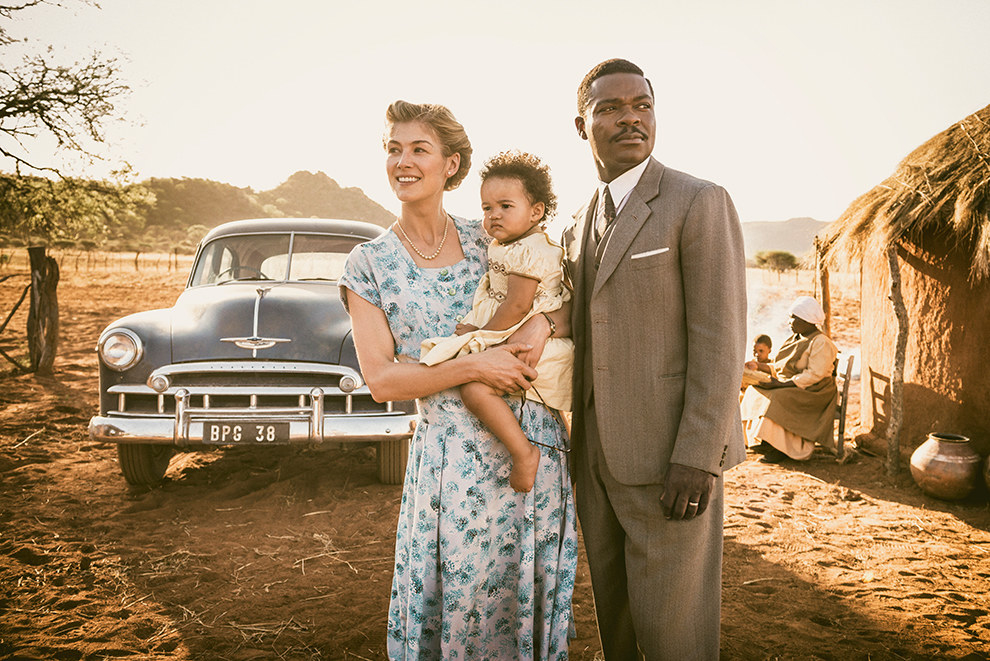Why A New Mixed Race Generation Will Not Solve RacismPosted in Articles, Communications/Media Studies, Media Archive, Politics/Public Policy, Social Justice, Social Science, United States on 2017-02-11 02:42Z by Steven |
Why A New Mixed Race Generation Will Not Solve Racism
BuzzFeed
2017-02-10
Lauren Michele Jackson, BuzzFeed Contributor
Chicago, Illinois
 A promotional still from A United Kingdom. Fox Searchlight Pictures |
Love may trump hate, but it can’t cure white supremacy.
On January 23, Chrissy Teigen — model, “domestic goddess,” and number one John Legend troll — decided to have some fun with Richard Spencer on Twitter. Now best known as the neo-Nazi who got punched at the January 20 presidential inauguration, Spencer was salving his wounded pride with a “selection of Nelson Mandela quotes. 😉”. The tweet to which Teigen responded, however, was actually a quote from Swiss psychoanalyst Carl Gustav Jung. “I am not what happened to me. I am what I choose to become,” Spencer tweeted. Teigen’s @reply: “you became someone who was punched in the face.”
When Spencer attempted to embarrass Teigen, implying she was not educated enough to recognize a quote from Mandela (while, again, the quote in question was not from Mandela), Teigen responded with “you are a literally a nazi. I don’t even need to come up with a comeback. Thanks, nazi!” Teigen meanwhile tweeted to her followers sans @reply, “Hey guys, just conversing with a literal nazi over here wyd,” followed by “Nothing I could say will piss him off more than the fact I have a black/asian/white baby. Life is grand.”.
A month prior, Ellen Pompeo of Grey’s Anatomy summoned her black husband and mixed children in a similar maneuver, if under slightly different circumstances. Against criticism she received for her usage of brown emojis in a tweet applauding A&E’s decision to revamp its (now canceled) docuseries on the KKK, Pompeo told followers, “You do realize…being married to a black man and having black children can make you a target from racist white people right? That’s a thing.” In response to one user’s taunt (“SHUT UP, WHITE LADY”) she tweeted, “That’s white lady with a black husband and black children to you babe.”
In their respective contexts, the tweets from Teigen and Pompeo look very different if not completely contradictory. Chrissy Teigen snubs the nose of a professed white supremacist and flounces away with her superstar black husband and multiracial child; Pompeo calls up her black husband and children to deflect criticism. And yet, very similarly, both position interracial relationships — implied in Teigen’s case — and multiracial children as the antidote to racism. That they are both able to invoke this rationale so congruently points to a culture-wide infatuation with interracial relationships and their heteronormative outcome, multiracial children. In advertising, on film, and on TV, there is a common preference for multiracial-looking people, along with the belief that they represent a utopian political future. Why do multiracial children so often function as the antonym for racism? What is the political value of an interracial relationship? The notion that cream-colored babies will save the world is a popular one. Unfortunately, it’s a myth…
Read the entire article here.